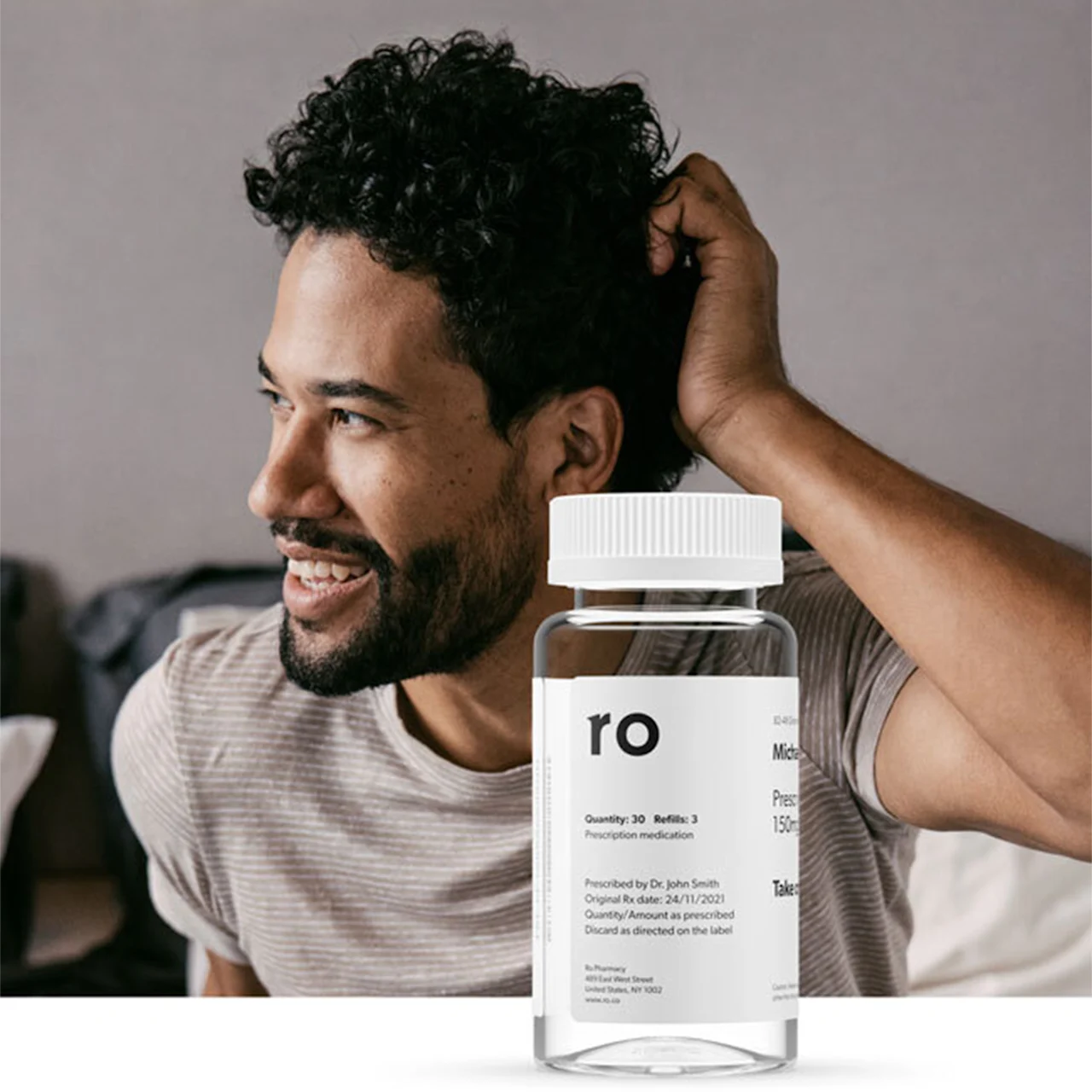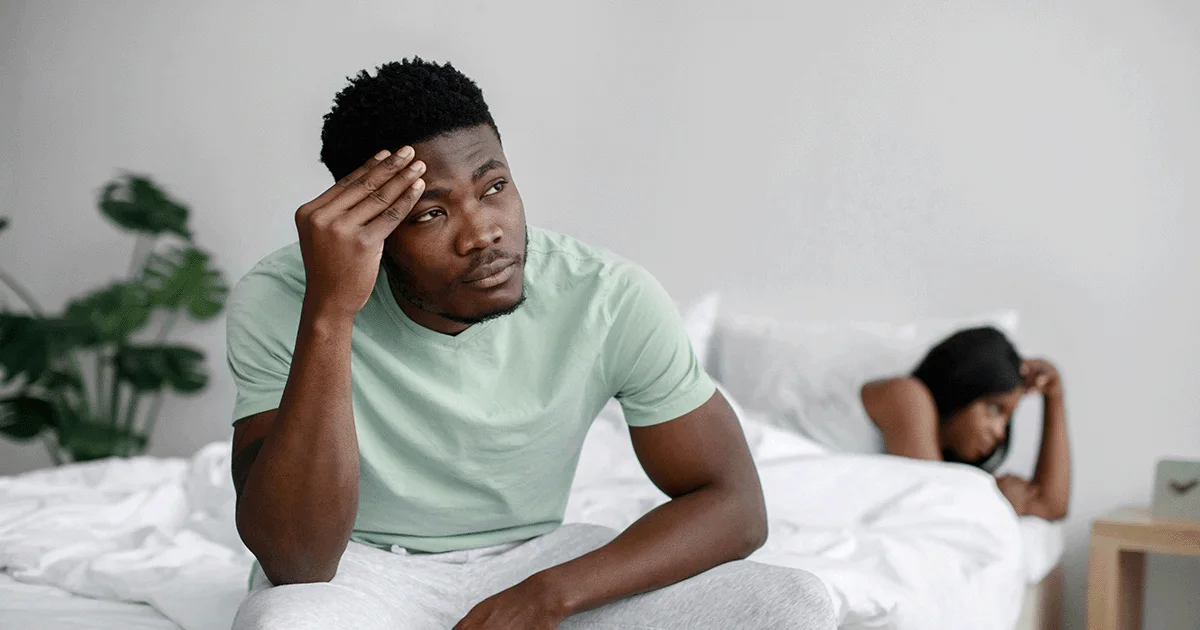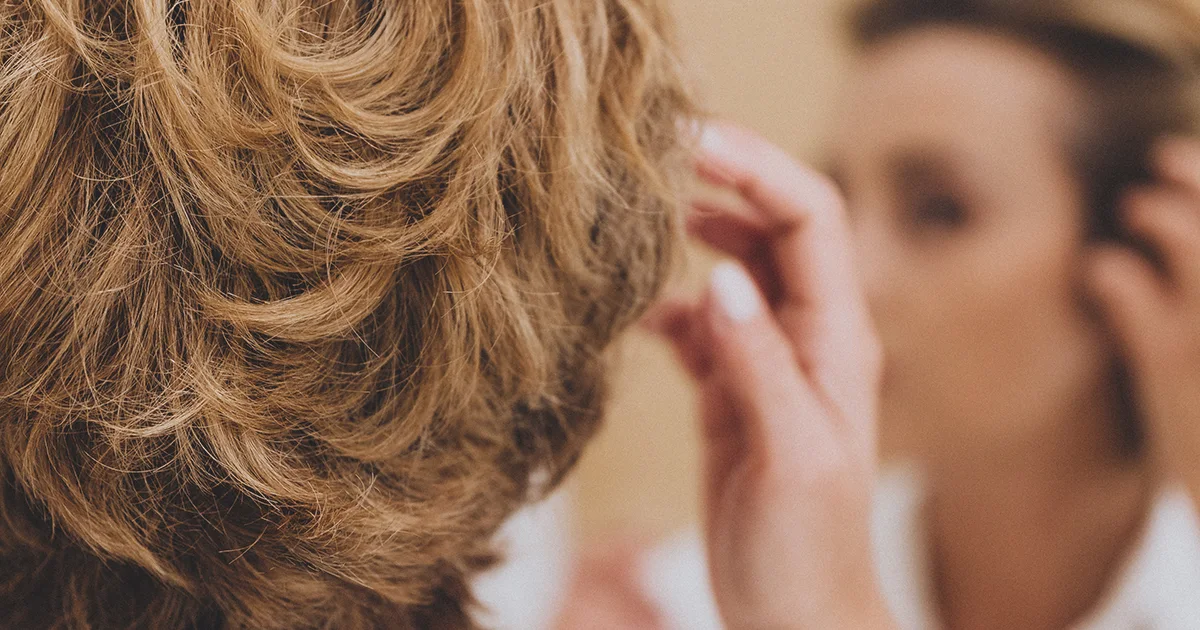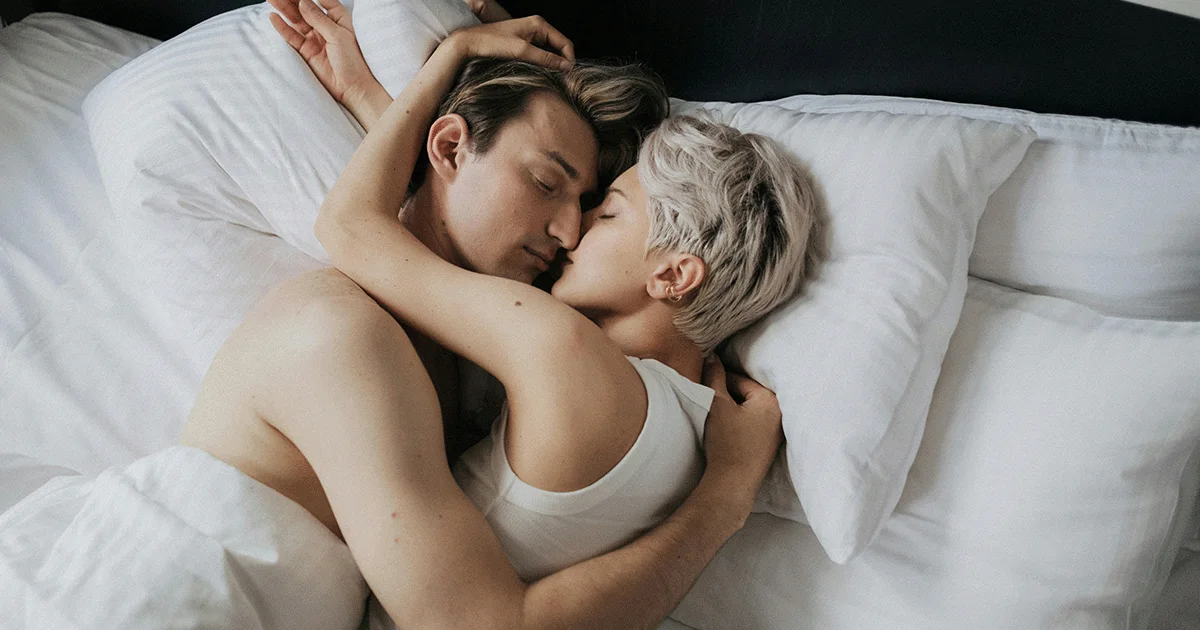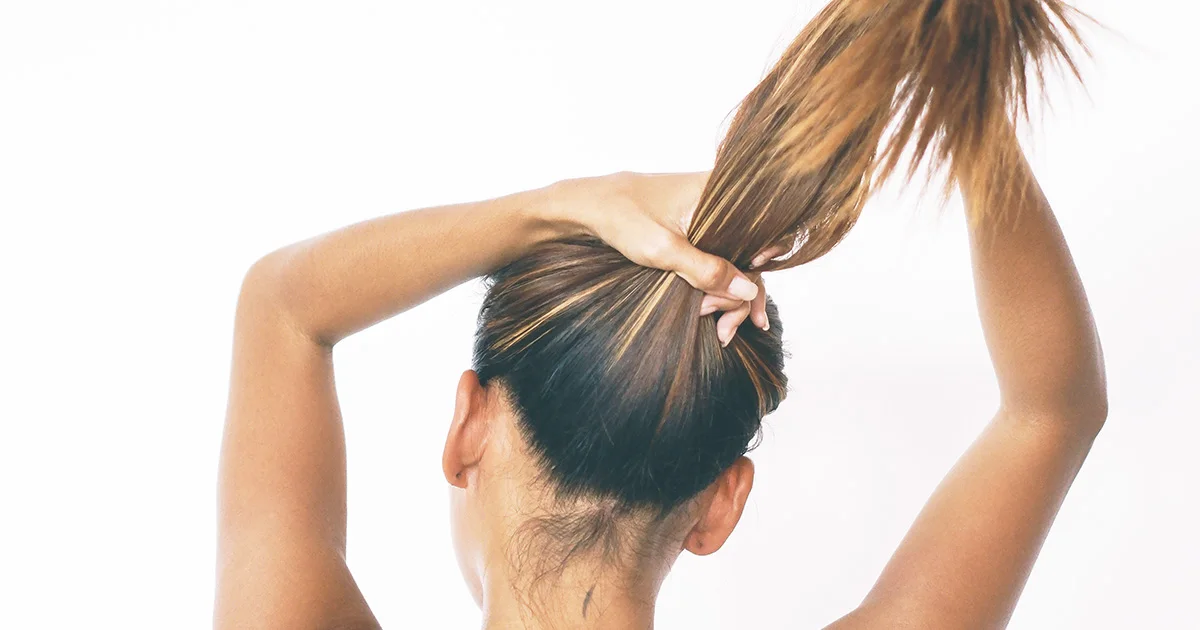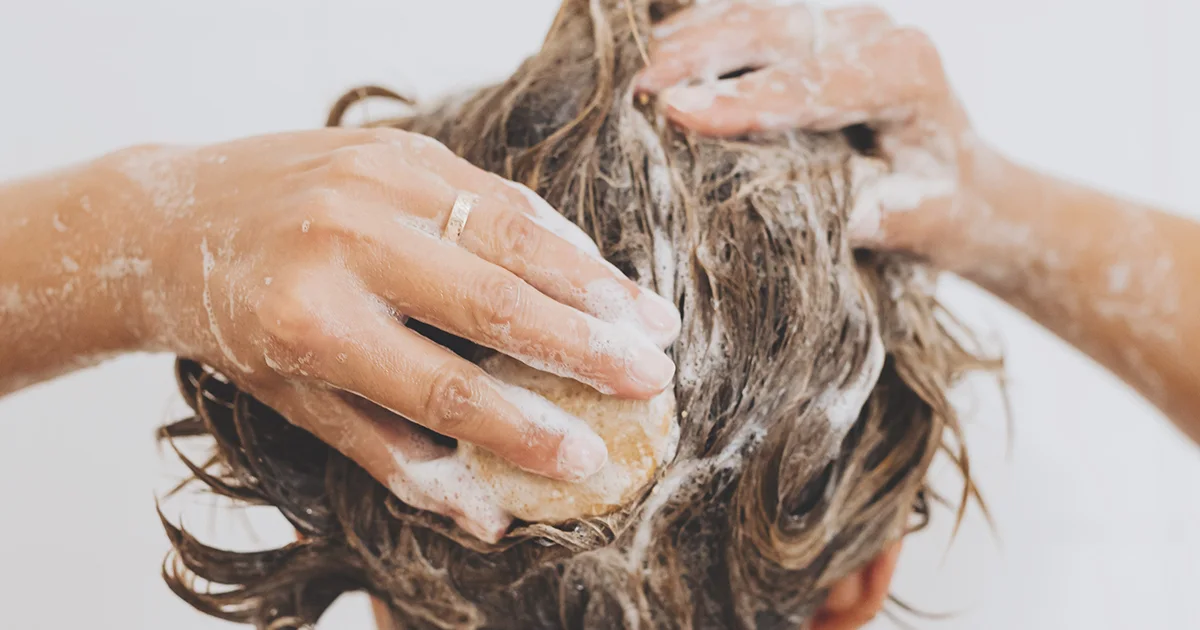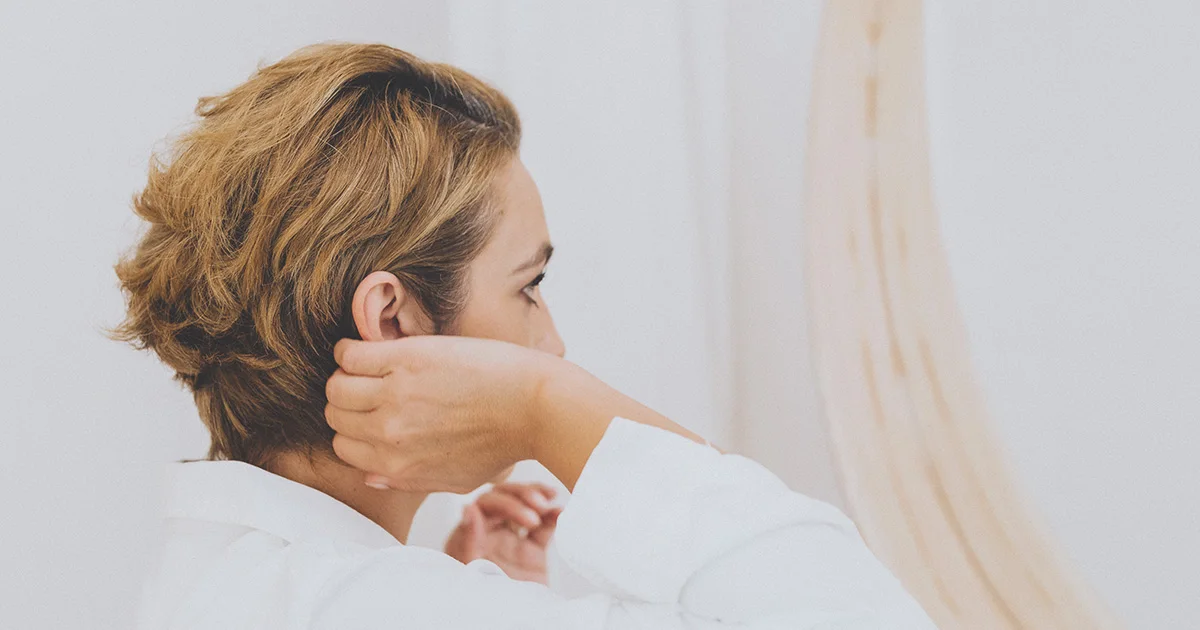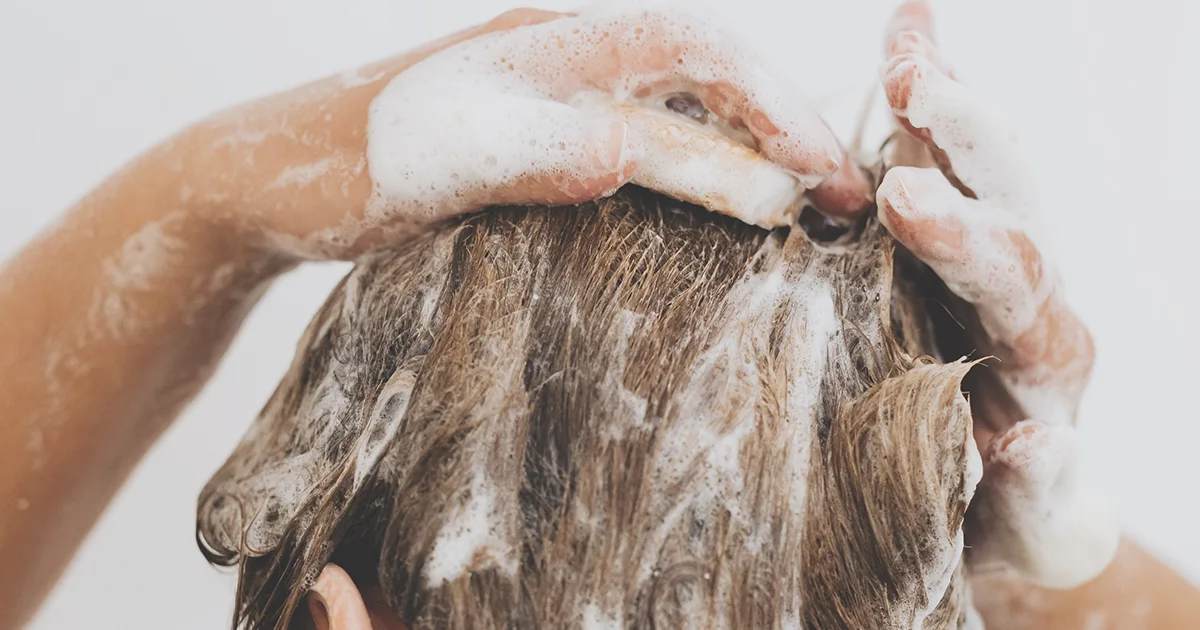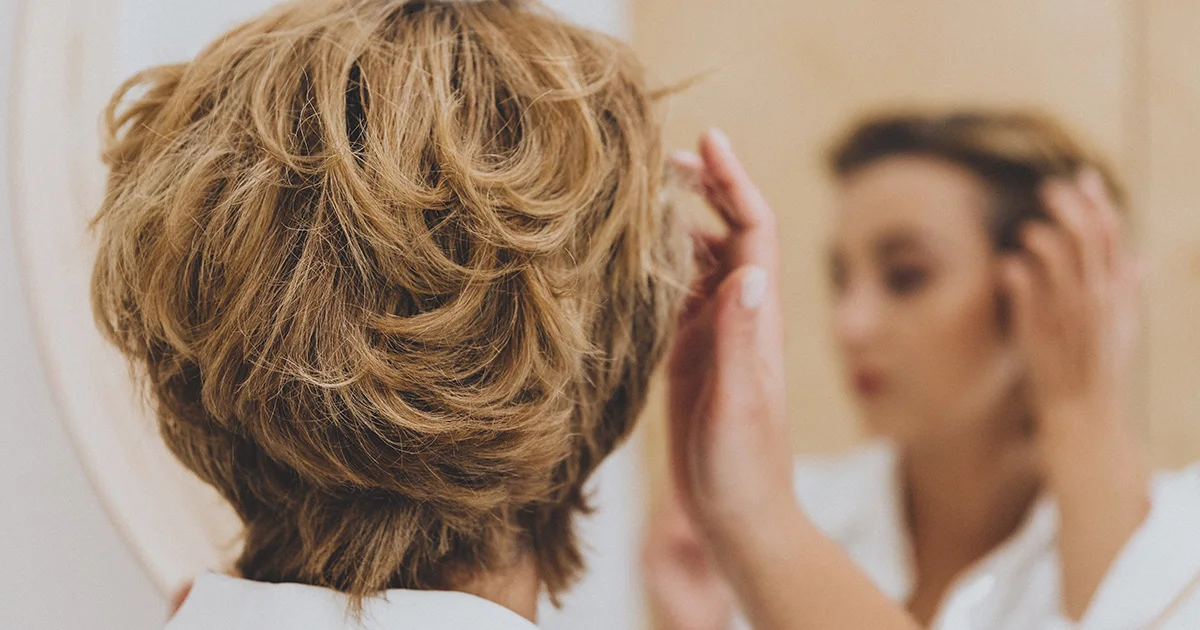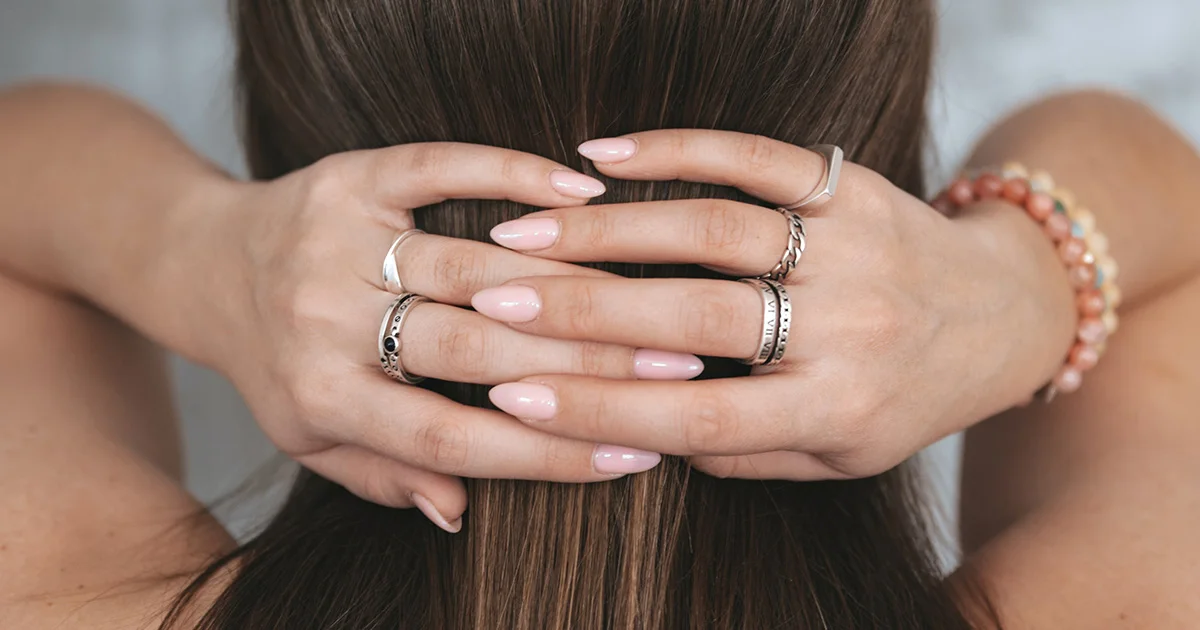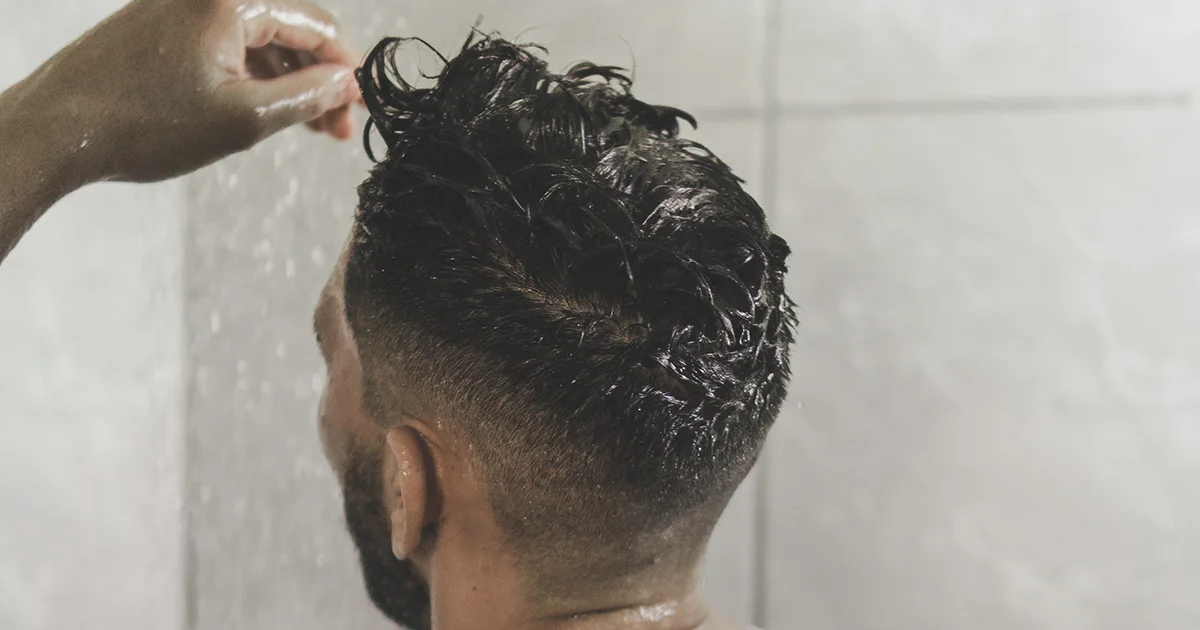Here's what we'll cover
Here's what we'll cover
Here's what we'll cover
If you’re suffering from hair loss, it’s only natural to worry a little extra about your scalp, especially if you’re also seeing little white flakes falling from your head. You may be wondering if your dandruff and hair loss are related. Read on to learn more about whether there is a link between the two.
Can dandruff cause hair loss?
Dandruff is a common condition that affects about half of American adults, related to another skin condition called seborrheic dermatitis. Dandruff may be due to a yeast-like fungus called Malassezia; there are other causes. It not only makes your scalp feel dry and itchy, but dandruff leaves those annoying scaly white flakes throughout your scalp and hair (Tucker, 2021).
Mild to moderate dandruff is not likely a major cause of hair loss. Some small studies suggest that people with dandruff had more hair shedding, but there is not enough data to say that dandruff causes hair loss (Trüeb, 2018; Piérard-Franchimont, 2006-a).
Severe dandruff and seborrheic dermatitis are more inflammatory and may cause intense itching and scratching, which may lead to hair follicle damage and subsequent hair loss. Fortunately, these more irritating conditions are not as common as run-of-the-mill dandruff (Tucker, 2021).
Temporary hair loss associated with mild scratching is usually reversible once you bring the itching and the irresistible urge to scratch under control. However, damage to hair follicles due to intense scratching may contribute to hair loss.
Do dandruff treatments cause hair loss?
Seeking treatment for your dandruff as soon as you notice it may help alleviate the itchy scalp faster, diminishing the chance of damaging hair follicles. The key is minimizing inflammation and damage to the hair follicles, which may negatively impact the density of regrowth. Since hair growth is a slow process, it can take time until your hair is noticeably back to normal.
Anti-dandruff shampoos and medicated shampoos are most likely not contributing to hair loss. These treatments commonly use antifungal agents to address a potential fungal infection from Malassezia. Since this organism can contribute to inflammation in the scalp, treating it is not likely to lead to hair loss. These shampoos’ common active ingredients include zinc pyrithione (also called pyrithione zinc), selenium sulfide, ketoconazole, salicylic acid, coal tar, sulfur, and ciclopirox (Borda, 2015).
None of these ingredients are known to cause hair loss. Some treatments contain salicylic acid, which can help prevent flaking by removing excess dead skin cells from the scalp. While these ingredients may cause irritation, shampooing with any of them shouldn’t cause hair loss (Borda, 2015).
What causes hair loss?
Hair health isn’t just affected by the scalp. Hair loss has many complex causes, including certain illnesses and health conditions, dieting, hormonal changes, aging, genetics, and even emotional trauma. Medical conditions seemingly unrelated to the scalp may also cause hair loss, such as thyroid conditions, an autoimmune condition called alopecia areata, and some conditions affecting the immune system (Al Aboud, 2021).
Most commonly, hair loss is hereditary and progresses as we age. This type of hair loss is called androgenic alopecia, and it can happen in both men and women, which is why it’s also known as either male pattern baldness or female pattern baldness (Al Aboud, 2021).
Hair loss treatments may cause dry scalp
While dandruff is almost definitely not causing your hair loss, the reverse may be true, depending on what you’re using to treat your hair loss. Some people develop contact dermatitis or an allergic reaction to certain shampoos and hair products, like those for hair loss. This can trigger itching and irritation, potentially worsening dandruff and hair loss.
For example, minoxidil may affect scalp health by causing dry skin. Since this medication requires consistent use to counter hair loss, the dryness may worsen over time, leading to flaking, redness, and potentially itchiness (Badri, 2021). Sometimes, adding a conditioner to your regimen can alleviate side effects like dry scalp and itching.
Oral Minoxidil Important Safety Information: Read more about serious warnings and safety info.
DISCLAIMER
If you have any medical questions or concerns, please talk to your healthcare provider. The articles on Health Guide are underpinned by peer-reviewed research and information drawn from medical societies and governmental agencies. However, they are not a substitute for professional medical advice, diagnosis, or treatment.
References
Al Aboud, A. M. & Zito, P. M. (2021). Alopecia. StatPearls . Retrieved on Feb. 15, 2022 from https://www.ncbi.nlm.nih.gov/books/NBK538178/
Badri, T., Nessel, T. A., & Kumar, D. D. (2021). Minoxidil. StatPearls . Retrieved on Feb. 15, 2022 from https://www.ncbi.nlm.nih.gov/books/NBK482378/
Borda, L. & Wikramanayake, T. (2015). Seborrheic dermatitis and dandruff: a comprehensive review. Journal of Clinical And Investigative Dermatology , 3 (2). doi:10.13188/2373-1044.1000019. Retrieved from https://pubmed.ncbi.nlm.nih.gov/27148560/
Piérard-Franchimont, C., Xhauflaire-Uhoda, E., & Piérard, G. E. (2006-a). Revisiting dandruff. International Journal of Cosmetic Science , 28 (5), 311–318. doi:10.1111/j.1467-2494.2006.00326.x. Retrieved from https://pubmed.ncbi.nlm.nih.gov/18489295/
Piérard-Franchimont, C., Xhauflaire-Uhoda, E., Loussouarn, G., et al. (2006-b). Dandruff-associated smouldering alopecia: a chronobiological assessment over 5 years. Clinical and Experimental Dermatology , 31 (1), 23–26. doi:10.1111/j.1365-2230.2005.02026.x. Retrieved from https://pubmed.ncbi.nlm.nih.gov/16309472/
Tucker, D. & Masood, S. (2021). Seborrheic dermatitis. StatPearls . Retrieved on Feb. 15, 2022 from https://www.ncbi.nlm.nih.gov/books/NBK551707/
Trüeb, R. M., Henry, J. P., Davis, M. G., & Schwartz, J. R. (2018). Scalp condition impacts hair growth and retention via oxidative stress. International Journal of Trichology , 10 (6), 262–270. doi:10.4103/ijt.ijt_57_18. Retrieved from https://www.ncbi.nlm.nih.gov/pmc/articles/PMC6369642/
